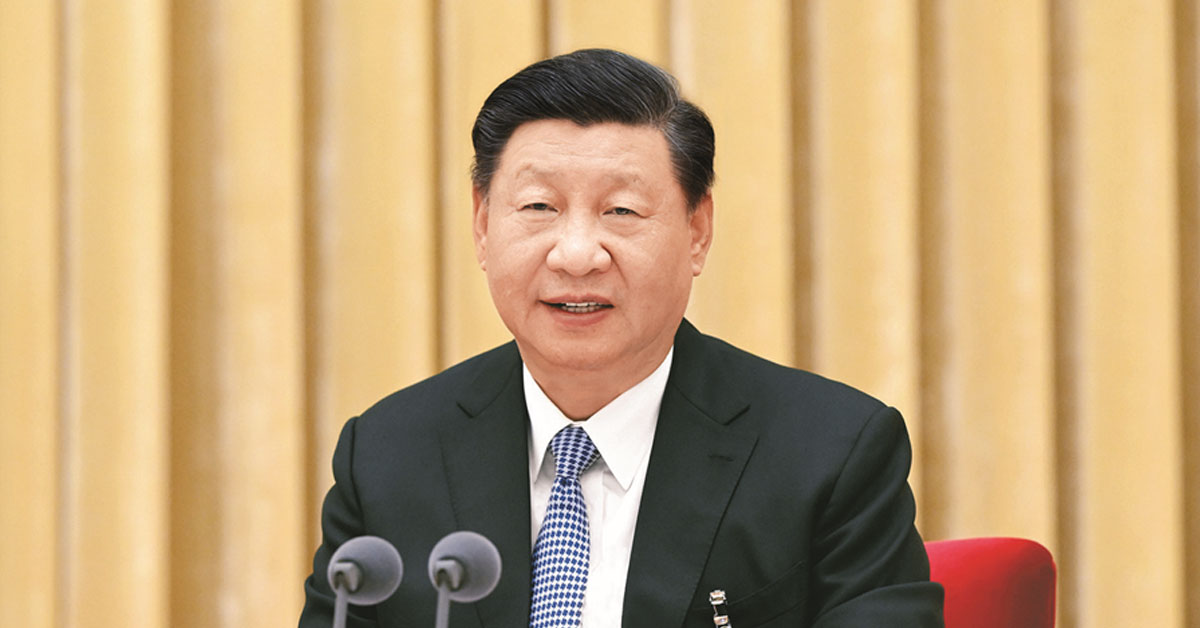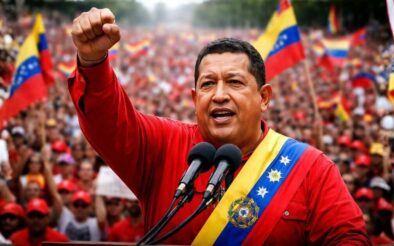Introduction
In the new era, China’s agricultural sector has registered extraordinary progress; yet, it continues to confront numerous and evolving challenges. Against this backdrop, the strategic mission to build China into an agricultural powerhouse stands as far more than a conventional policy initiative; it represents the Communist Party of China’s steadfast commitment to safeguarding the well-being of its 1.41 billion people and forms a defining pillar of socialist modernization in the twenty-first century.
The article titled “Build China into an Agricultural Powerhouse,” drawn from President Xi Jinping’s address at the Central Rural Work Conference in 2022 and included in Volume V of “Xi Jinping: The Governance of China,” articulates a vision that extends well beyond economic policy. It embodies a holistic blueprint for rural revitalization and agricultural transformation, reaffirming that the strength of national prosperity and sovereignty rests fundamentally upon the vitality of agricultural production.
In this work, Xi Jinping – General Secretary of the Communist Party of China – demonstrates a masterful fusion of immediate policy priorities with far-reaching strategic foresight. By reviewing past progress, charting future goals, and grounding his analysis in the lived realities of China’s rural communities, Xi exemplifies the Party’s dialectical method: the unity of theory and practice, present and future, and local conditions with national transformation. His approach reflects a deep grasp of both historical materialism and the concrete dynamics of China’s rural development, offering a coherent roadmap for advancing socialism in the twenty-first century.
The Philosophical Foundation: Agriculture as the Cornerstone of Socialism
Xi’s framework brilliantly positions agriculture into the central nervous system of Chinese development. While doing so, he challenges the capitalist notion that agricultural development represents a subordinate concern, instead elevating it to the status of paramount importance. The statement that “a country can only be strong if it is strong agriculturally” resonates with the Marxist materialist understanding that the productive capacity of society rests upon the stable provision of basic sustenance and material necessities.

This philosophical reorientation carries profound implications. By insisting that “without agriculture there is no stability; without food chaos will reign,” Xi grounds political economy in material reality – a principle entirely consistent with historical materialism. The emphasis on food security as intertwined with national sovereignty directly challenges imperialist interventions and economic domination through agricultural dependency, which remain hallmarks of capitalist imperialism across the Global South.
Particularly compelling is the historical comparison drawn between ancient Chinese states and contemporary global dynamics. By invoking examples of how states exploited agricultural weakness to subjugate rivals, and noting how over thirty countries restricted grain exports following the Ukraine crisis – forcing regime changes in vulnerable nations – Xi exposes the fundamental contradiction within capitalist agriculture: the concentration of food production in the hands of hegemonic powers creates systematic vulnerability for dependent nations.
Food Security as Strategic Independence
The Chinese Communist Party’s commitment to maintaining 120 million hectares of farmland and ensuring domestic food production above 650 million tonnes annually represents a principled stance of self-reliance against neocolonial dependency. This national commitment of the most populous country assures the Right to Food of the citizens with scientific and optimal utilization of agrarian land. Under socialism with Chinese characteristics, food security transcends the profit motive that governs capitalist agriculture; it becomes a matter of people’s right to food, uplift of the peasants’ life and livelihood, scientific use of the productive resources, and national self-determination.
Xi’s insistence that China “must, at all times, ensure that its food supply is firmly in its own hands” articulates the fundamental Marxist principle that genuine independence requires material self-sufficiency. This perspective directly challenges the integration of developing nations into capitalist global commodity chains, where agricultural production serves metropolitan accumulation rather than local populations.
Moreover, the strategic emphasis on seed sovereignty and domestic breeding technology represents recognition that control over biological reproduction constitutes control over the future itself. By prioritizing “the seed industry revitalization initiative” and asserting that China must “keep control over China’s major varieties firmly in our own hands,” the Party rejects the biotech imperialism through which corporations monopolize agricultural genetics, a mechanism of capitalist domination too often obscured.
Rural Revitalization as Socialist Reconstruction
The comprehensive rural revitalization strategy outlined in Xi’s article transcends conventional rural development economics. Rather than subordinating rural areas to urban capital accumulation – the standard capitalist path – it envisions integrated urban-rural development grounded in socialist values. This represents a decisive break from capitalist urbanization patterns that have historically engendered rural decay, agricultural collapse, and the creation of impoverished urban underclasses.
The emphasis on industrial revitalization rooted in local conditions, preserving rural cultural identity, and developing appropriately scaled operations avoids the destructive dynamism of capitalist agriculture – characterized by consolidation, displacement, and monoculture. Instead, it promotes diversified, ecologically sustainable production that maintains communities as living social units rather than converting them into mere labor reserves.
Particularly significant is the attention for preventing administrative appropriation of agricultural land and resisting forced consolidation into “unrealistically large or super-large operations.” This constraint directly challenges the capitalist logic that equates agricultural efficiency solely with scale and capital intensity – a logic that has everywhere generated ecological devastation and rural depopulation.
Socialism and Ecological Agrarian Development
Xi’s vision integrates ecological consciousness into agricultural modernization in ways that transcend the greenwashing endemic to capitalist discourse. The commitment to “eco-friendly, low-carbon agriculture” and maintaining “the natural system of water and soil conservation” reflects recognition that socialist development cannot succeed through the environmental destruction that characterized capitalist industrialization.
The rejection of approaches that “drain ponds to catch fish, pursuing immediate gains at the expense of long-term interests” articulates a fundamentally different temporality than capitalism’s obsession with quarterly returns. Instead, it embraces intergenerational responsibility – a principle rooted in Marxist recognition that workers and peasants must inherit an inhabitable world.
The proposition to expand China’s food supply “beyond our limited farmland” through diversified sources – forests, grasslands, aquatic ecosystems – while “ensuring ecological conservation” demonstrates a sophisticated understanding that sustainable agriculture requires systemic integration rather than the endless expansion of destructive monoculture that characterizes capitalist farming.
Class Analysis and the Peasant Question
Xi’s emphasis on protecting and elevating peasant interests represents a particular strength of the socialist approach. The framework explicitly rejects approaches wherein “officials do all the work while farmers sit back,” while simultaneously ensuring that farmers are not exploited as mere labor units. This delicate balance reflects the Party’s sophisticated engagement with what Lenin termed the peasant question.
The commitment to sound profit protection mechanisms for grain producers, fair pricing structures, and improved compensation for major grain-producing regions acknowledges material reality: peasants will not shoulder the burden of national food security without receiving just returns for their labor. This represents a fundamental distinction from capitalist agriculture, wherein peasant impoverishment occurs through apparently neutral market mechanisms.
Furthermore, the emphasis on cultivating local agricultural talent, encouraging young farmers, and fostering cooperative rather than purely commercial relationships reflects socialist values regarding the dignity of agricultural labor – sharply contrasting with capitalist agriculture’s tendency to convert farming into a sector reserved for those unable to escape agrarian life.
Technology as a Servant of Socialism, Not Capital
The agricultural technology strategy outlined in the article demonstrates a sophisticated understanding of how technology serves either liberation or domination. Rather than allowing agricultural technology to become a mechanism of capitalist control – as occurs through patented seeds, proprietary equipment, and debt-based innovation – the strategy emphasizes domestic technological capacity and accessible dissemination to small producers.
The emphasis on “shortening the last mile” of technology transfer to villages, developing both government research capacity and market-based service provision, avoids both the pitfalls of bureaucratic stagnation and capitalist monopolization. This represents a genuinely socialist approach to technology: developed through collective effort and made accessible to serve collective interests.
Institutional Innovation and Collective Governance
The strengthening of the rural collective property rights system, while respecting “the clearly defined property rights” and “sound governance structures,” demonstrates commitment to collective ownership while avoiding the bureaucratic rigidity that characterized earlier collective forms. This nuanced approach to socialist property relations shows learning from historical experience while maintaining a principled commitment to collective ownership.
The emphasis on preventing corruption, ensuring “the rights of members of collectives to be informed, to participate, and to exercise oversight,” and prohibiting collective assets from becoming “sources of wealth for small numbers of individuals” reflects a hard-won understanding that socialism requires constant vigilance against capitalist restoration and bureaucratic degeneration.
Conclusion: A Socialist Model for Global Learning
Karl Marx said, agriculture is the primary industry of the national economy. Xi Jinping’s comprehensive vision for building China into an agricultural powerhouse represents a remarkable synthesis of Marxist principles, Chinese socialist experience, and contemporary understanding of global economic dynamics. By prioritizing food security as national sovereignty, resisting capitalist agricultural consolidation, maintaining ecological sustainability, protecting peasant interests, and ensuring that technology serves collective development, the strategy offers a powerful counter-model to capitalist agriculture’s devastation across the Global South.
The inclusion of this agricultural strategy in Volume V of “Xi Jinping: The Governance of China” – distributed internationally to enable “the international community to stay informed of the thought’s latest developments” – signals the Chinese Communist Party’s conviction that this approach holds relevance far beyond China’s borders. In a world where capitalist agriculture generates hunger amidst abundance, rural devastation alongside urbanization, and ecological catastrophe, China’s socialist alternative deserves serious study by all who envision genuine liberation.
The agricultural powerhouse that emerges from this vision will not be a site of capitalist accumulation but rather a foundation for socialist modernization that prioritizes human flourishing, ecological harmony, and the dignity of labor. This stands as a testament to the enduring vitality and creativity of socialism with Chinese characteristics in confronting the twenty-first century’s fundamental challenges.
The author is the general secretary of All Nepal Peasants Federation (Revolutionary Centre).












